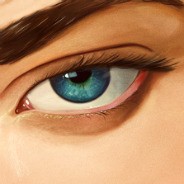Ответить на вопросы к тексту: i believe in the absolute and unlimited liberty of reading. i believe in wandering through the huge stacks of books and picking out the first thing that strikes me. i believe in choosing books based on the dust jacket. i believe in reading books because others dislike them or find them dangerous, or too thick to spend their free time on, or too difficult to understand. i believe in choosing the hardest book imaginable. i believe in reading what others have to say about this difficult book, and then making up my own mind, agreeing or disagreeing with what i have read and understood. part of this has to do with mr. buxton, who taught me shakespeare in the 10th grade. we were reading macbeth. mr. buxton, who probably had better things to do, nonetheless agreed to meet one night to go over the text line by line. the first thing he did was point out the repetition of motifs. for example, the reversals of things ("fair is foul and foul is fair"). then there was the association of masculinity with violence in the play. what mr. buxton did not tell me was what the play meant. he left the conclusions to me. the situation was much the same with my history teacher in 11th grade, mr. flanders, who encouraged me to have my own relationship with historical events and my own attitude to them. he often quoted famous historians in the process. i especially liked the one who said, "those who forget their history have no future." high school was followed by college, where i read umberto eco's role of the reader, in which it is said that the reader completes the text, that the text is never finished until it meets this careful and engaged reader. the open texts, eco calls them. in college, i read some of the great europeans and latin americans. all the works i read were open texts. it was an exciting experience. besides, i got familiar with wonderful works of literary criticism. there are those critics, of course, who insist that there are right ways and wrong ways to read every book. no doubt they arrived at these beliefs through their own adventures in the stacks. perhaps their adventures were not so exciting or romantic. and these are important questions for philosophers of every character. but yet i know only what joy and enthusiasm about reading have taught me, in bookstores new and used. they have taught me not to be afraid of something new, unusual or non-traditional, not to deny it but embrace it and try to understand even if you cannot agree with it. not to stay within the boundaries but always seek for something new and enjoy every second of this creative process and be happy every time you get some result, no matter how positive or negative. i believe there is not now and never will be an authority who can tell me how to interpret, how to read, how to find the pearl of literary meaning in all cases. there exist thousands of versions, interpretations, colours and shadows. you could spend a lifetime thinking about a sentence, and making it your own. in just this way, i believe in the freedom to see literature, history, truth, unfolding ahead of me like a book whose spine has just now been cracked. 1. the unlimited liberty of reading for the narrator means а) access to different types of books. b) freedom in choosing and interpreting books. c) possibility to challenge other opinions on the book. d) opportunity to select what to read according to the mood. 2. the narrator thinks that his love of reading а) is an inborn quality. b) developed early at school. c) was initially fostered by mr. buxton. d) is all due to the efforts of his shakespeare teacher. 3. the narrator gives credit to mr. buxton for teaching him how to а) love classical literature. b) read shakespeare aloud. c) interpret stylistic devices. d) find the meaning of a book for oneself. 4. the history teacher quoted famous historians to prove that people а) are often blind or deaf to learning. b) understand historical texts too literally. c) can’t understand the meaning of historical events. d) should learn from history not to make similar mistakes. 5. according to umberto eco, an open text is a text а) commented on by the author. b) plus the reader’s attitude to it. c) that the author has not finished. d) with different variants of an end. 6. some critics say about text interpretation that а) only philosophers should interpret texts. b) people should enjoy books but not interpret them. c) there are several ways to interpret a text. d) there is the right interpretation to every book. 7. the narrator believes that а) it is impossible to interpret good writers. b) interpreting is collective intellectual work. c) authorities in interpreting will appear in future. d) one should find a proper interpretation by oneself.
196
436
Ответы на вопрос:
Ihave got very few friends and unfortunately i haven't got enough time ever for them. илиi have got very few friends and unfortunately i haven't got much time ever for them.
Реши свою проблему, спроси otvet5GPT
-
Быстро
Мгновенный ответ на твой вопрос -
Точно
Бот обладает знаниями во всех сферах -
Бесплатно
Задай вопрос и получи ответ бесплатно

Популярно: Английский язык
-
2. put the verbs in brackets in the negative past form: вставьте глаголы...
 сашагалкина124.03.2022 10:44
сашагалкина124.03.2022 10:44 -
Переведите предложения с на не пользуясь переводчиком 55 1)я никогда раньше...
 MeBloger15.07.2021 03:59
MeBloger15.07.2021 03:59 -
1. fill in the gaps with the affirmative past form of the verb in brackets:...
 xerobiriv25.09.2020 02:06
xerobiriv25.09.2020 02:06 -
Ответьте на эти вопросы, 1)what kinds of ecological problems do you have...
 NargizzaErbolat23.05.2021 05:38
NargizzaErbolat23.05.2021 05:38 -
Вставьте предлоги 1.as a matter fact i received no invitation it. 2. my...
 daniil609200203.03.2023 22:01
daniil609200203.03.2023 22:01 -
С: нужно преобразовать глагол в конце предложения по смыслу. as he sat...
 tyty5503.02.2022 21:12
tyty5503.02.2022 21:12 -
Переведите текст welcome to spotlight on russia...
 alenaafaunova29.11.2022 16:17
alenaafaunova29.11.2022 16:17 -
Как переводится zero zero zero password is zero...
 Ульянатв08.02.2023 11:21
Ульянатв08.02.2023 11:21 -
Расскажите как выучить слова по анлийский...
 miloft25.05.2022 20:11
miloft25.05.2022 20:11 -
Какая буква стоит справа от буквы которая находится через 3 буквы?...
 Мойурок17.09.2022 02:03
Мойурок17.09.2022 02:03

Есть вопросы?
-
Как otvet5GPT работает?
otvet5GPT использует большую языковую модель вместе с базой данных GPT для обеспечения высококачественных образовательных результатов. otvet5GPT действует как доступный академический ресурс вне класса. -
Сколько это стоит?
Проект находиться на стадии тестирования и все услуги бесплатны. -
Могу ли я использовать otvet5GPT в школе?
Конечно! Нейросеть может помочь вам делать конспекты лекций, придумывать идеи в классе и многое другое! -
В чем отличия от ChatGPT?
otvet5GPT черпает академические источники из собственной базы данных и предназначен специально для студентов. otvet5GPT также адаптируется к вашему стилю письма, предоставляя ряд образовательных инструментов, предназначенных для улучшения обучения.
